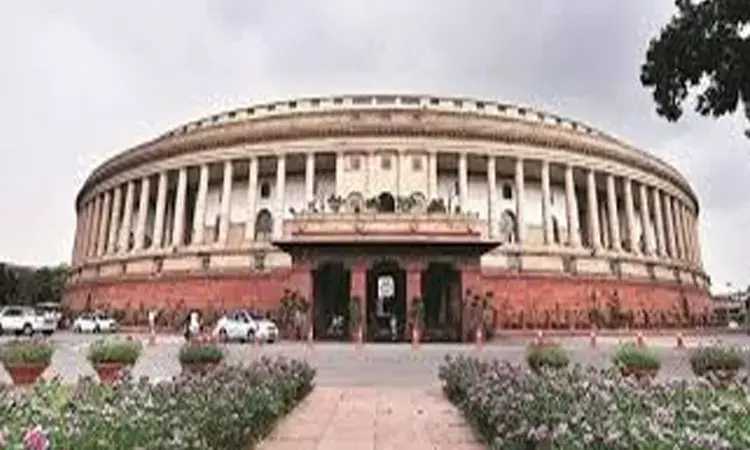- Home
- Medical news & Guidelines
- Anesthesiology
- Cardiology and CTVS
- Critical Care
- Dentistry
- Dermatology
- Diabetes and Endocrinology
- ENT
- Gastroenterology
- Medicine
- Nephrology
- Neurology
- Obstretics-Gynaecology
- Oncology
- Ophthalmology
- Orthopaedics
- Pediatrics-Neonatology
- Psychiatry
- Pulmonology
- Radiology
- Surgery
- Urology
- Laboratory Medicine
- Diet
- Nursing
- Paramedical
- Physiotherapy
- Health news
- Fact Check
- Bone Health Fact Check
- Brain Health Fact Check
- Cancer Related Fact Check
- Child Care Fact Check
- Dental and oral health fact check
- Diabetes and metabolic health fact check
- Diet and Nutrition Fact Check
- Eye and ENT Care Fact Check
- Fitness fact check
- Gut health fact check
- Heart health fact check
- Kidney health fact check
- Medical education fact check
- Men's health fact check
- Respiratory fact check
- Skin and hair care fact check
- Vaccine and Immunization fact check
- Women's health fact check
- AYUSH
- State News
- Andaman and Nicobar Islands
- Andhra Pradesh
- Arunachal Pradesh
- Assam
- Bihar
- Chandigarh
- Chattisgarh
- Dadra and Nagar Haveli
- Daman and Diu
- Delhi
- Goa
- Gujarat
- Haryana
- Himachal Pradesh
- Jammu & Kashmir
- Jharkhand
- Karnataka
- Kerala
- Ladakh
- Lakshadweep
- Madhya Pradesh
- Maharashtra
- Manipur
- Meghalaya
- Mizoram
- Nagaland
- Odisha
- Puducherry
- Punjab
- Rajasthan
- Sikkim
- Tamil Nadu
- Telangana
- Tripura
- Uttar Pradesh
- Uttrakhand
- West Bengal
- Medical Education
- Industry
3 Ayurveda institutes in Gujarat to be merged: LS clears bill

The lower House passed the Bill after over three hours debate in which various opposition MPs raised questions over why such an institute is being established in Gujarat only and urged the government to set up similar institutes in Kerala, West Bengal and Maharashtra as well.
New Delhi - The Lok Sabha on Thursday passed a Bill that seeks merger of three Ayurveda institutes into one by establishing an Institute of Teaching and Research in Ayurveda by declaring it as an Institution of National Importance.
If the Institute of Teaching and Research in Ayurveda Bill, 2020 gets the Rajya Sabha''s approval the status of Institution of National Importance will be given to the Institute of Teaching and Research in Ayurveda, Jamnagar, by conglomerating the cluster of Ayurveda Institutes at Gujarat Ayurveda University (GAU) campus, Jamnagar, Gujarat.
The Bill seeks merger of the Institute of Post Graduate Teaching and Research in Ayurveda, Shree Gulabkunverba Ayurved Mahavidyalaya, and the Indian Institute of Ayurvedic Pharmaceutical Sciences. The three institutes are based in Jamnagar.
The Bill states that the objective of the Institute will be to develop patterns of teaching in medical education in Ayurveda and pharmacy, bring together educational facilities for training of personnel in all branches of Ayurveda, attain self-sufficiency in postgraduate education to meet the need for specialists and medical teachers in Ayurveda, and make an in-depth study and research in the field of Ayurveda.
The lower House passed the Bill after over three hours debate in which various opposition MPs raised questions over why such an institute is being established in Gujarat only and urged the government to set up similar institutes in Kerala, West Bengal and Maharashtra as well.
The Congress, Nationalist Congress Party (NCP) and YSR Congress MPs among others, who participated in the discussion, raised the issue in the lower House. "We are talking about strengthening Ayurveda by elevating the particular thing in Jamnagar. But the fact is, on what basis is it considered an institute of national importance. Where is the equality with the other institutions as provided by the Constitution.
"Standing Committee on HRD had once said that there should be parameters to evaluate the institutions. It is not being done there (Gujrat). Is it merely because of Ayurveda Institutes at Gujarat Ayurveda University (GAU) campus," Congress Shashi Tharoor said.
"I request that what is being done in Gujarat also be done in Kerala. Similar national University of Ayurveda should also be set up in Thiruvananthapuram as Institute of National importance."
Raghu Ramakrishna Raju of YSR Congress said he is happy that by taking such initiative the government is going back to the roots of Indian Ayurveda that was invented by Dhanwantari -- a Hindu God of medicine -- and requested that similar institutes should also be established in Kerala and West Bengal also which are rich in this ancient medical terminology.
NCP''s Amol Ramsing Kolhe appreciated the central government''s initiative for establishing an Ayurveda institute of National importance in Gujarat but asked why similar institutes are not being set up in Kerala, West Bengal and Maharashtra.
Responding to discussions, Minister of State for AYUSH Shripad Yesso Naik said that 11 institutes of national importance will be established across the country and one of such institutes will be set up in Thiruvananthpuram too.
The Bill provides that the institute will consist of 15 members, which include three technical experts. The functions of the institute will include providing for undergraduate and postgraduate teaching in Ayurveda (including pharmacy) and prescribe courses and curricula for both undergraduate and postgraduate studies in Ayurveda.
It will also provide facilities for research in the various branches of Ayurveda, hold examinations and grant degrees, diplomas and other distinctions and titles in education in Ayurveda and pharmacy, and maintain well-equipped colleges and hospitals for Ayurveda supporting staff such as nurses and pharmacists.
Medical Dialogues Bureau consists of a team of passionate medical/scientific writers, led by doctors and healthcare researchers. Our team efforts to bring you updated and timely news about the important happenings of the medical and healthcare sector. Our editorial team can be reached at editorial@medicaldialogues.in.


